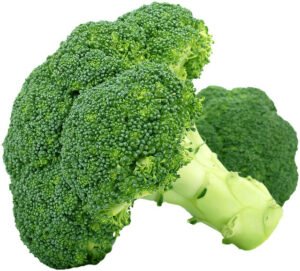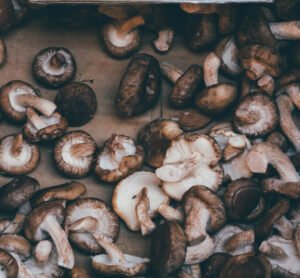Vegan Globetrotter is supported by our audience. When you purchase through one of our links, we may earn a small affiliate commission. As an Amazon Associate I earn from qualifying purchases. Your cost is not affected.
==================
TOP 10 BEST FOODS TO REDUCE INFLAMMATION
You may have heard this often by reducing inflammation; your body gets energy and health. Reducing inflammation provides good health to our body. But first, we need to know what the inflammation is. What is the reason behind this inflammation.? And how can we get rid of it? Are there any foods that can fight inflammation? We will see the best foods to reduce inflammation in this article.
What is inflammation?
Inflammation is an immune reaction that happens as cells are instructed to repair damage caused by something alien in the body. Whenever you cut your finger or fend off an infection, the white blood cells race to the trouble site to fight destructive cells; moreover, these white blood cells eliminate any unnecessary or unwarranted movement or debris and begin the process of healing. However, sometimes this healing process causes inflammation.
Inflammation helps the body battle disease and can safeguard it from injury. It is a necessary part of the healing process in most cases. Some patients, though, have a medical disorder in which the immune system doesn’t function as it should. This dysfunction can result in low-level inflammation that is chronic or recurrent.
Our bodies, after exercise, desire (and need) replenishment and nourishment. Inflammation of the muscles is widespread in sports. It causes swelling of the body that can lead to inflammation, serious injury, and bulkiness. The bodies, limbs, and tissues of athletes need to be healed by proper foods following a long race. So, we will discuss some best foods that fight inflammation.
Anti-inflammatory foods can help heal inflammation and help avoid it. So, you can reduce inflammation entirely by opting to consume vegan, anti-inflammatory foods after exercise and in the average diet.
What are the types of an anti-inflammatory diet?
Already, many traditional diets contribute to anti-inflammatory ideals. For example, fresh fruits and vegetables, fish, whole grains, and fats are healthy for the heart. Moreover, all these vegetable food items are present in both the Mediterranean diet and the DASH diet.
The inflammation tends to play a role in cardiovascular disease, but evidence shows that the Mediterranean diet may reduce inflammation. These fresh vegetables and fruits are the best foods to reduce inflammation.
Top 10 best foods that fight inflammation.
There are additives in certain foods that can induce or exacerbate inflammation. Sugary or processed foods may do this, while this effect is less likely to be had by fresh, whole foods. New fruits and vegetables are the subjects of an anti-inflammatory diet.
Many foods that are based on plants are good sources of antioxidants. However, some foods can trigger free radicals to form. However, we have gathered the top best foods to reduce inflammation for you.
It will help heal inflammation and help prevent it altogether by eating vegan, anti-inflammatory foods after exercise and a daily diet. It is not just beneficial for athletes to eat anti-inflammatory food. However, it can also be great for high blood sugar, body aches, and arthritis.
-
1- Beets

Beets roots and greens
Beetroots are a popular root vegetable used in many cuisines around the world, widely known as beets. Beets, some of which have medicinal properties, are filled with essential vitamins, minerals, and plant compounds. What’s more, they are nutritious and easy to add to your diet.
There is a range of advantages to having beets in your diet, including reducing blood pressure, improving your stamina, and defending off inflammation. A vitamin called betaine is present in beets and has been shown to decrease the risk of inflammation. Therefore, beets are considered one of the best foods that fight inflammation
A tip-off to its similarly brilliant antioxidant properties is this vegetable’s exact red hue. Thanks to their generous assistance of carbohydrates, folate, and vital plant pigments called betalains. Moreover, beetroot juice can not only minimize inflammation but can also protect against cancer and heart disease.
-
2- Whole Grains
Whole grains slowly digest in the body, helping to keep blood sugar low and fight against inflammation. Inflammation in the body is increased by increases in blood sugar resulting from consuming white pasta, bread, and sugary snacks.
Holding these spikes at bay will decrease inflammation and will keep you happy and complete as well. Brown rice, quinoa, rye, or steel-cut oats are some perfect options for whole grains.

Variety of Whole Grains
Begin the day with oatmeal or overnight oats, or whip rolled oats into a smoothie to make a perfect combination.
Moreover, there are several easy ways to integrate 100 percent whole grains into any meal. In a garden salad or grain dish, add fried, chilled quinoa for lunch.
Moreover, then snack on popcorn popped in extra virgin olive oil or avocado oil. At dinner, prepare a veggie-filled stir-fry over a brown rice bed or add wild rice to a soup or veggie chili. So, overall consuming whole grains is the best food that fights inflammation.
-
3- Blueberries and other berries
 Berries, especially blueberries, blackberries, and raspberries, are full of flavonoids called vitamins and antioxidants that can help combat inflammation. We also have molecules that help the immune system control and may reduce systemic inflammation.
Berries, especially blueberries, blackberries, and raspberries, are full of flavonoids called vitamins and antioxidants that can help combat inflammation. We also have molecules that help the immune system control and may reduce systemic inflammation.
Berries are jam-packed with flavonoids and carotenoids, similar to leafy greens. These popular berries contain antioxidants and anti-inflammatory properties and are a top superfood. These tiny berries can help make the skin glow, foster a robust immune system, and help with rapid metabolism. Grab a handful of this superpower for the competitor on the go, and you are done. It’s usually better to buy in season, but frozen blueberries are also perfect to put in a pre-or post-workout smoothie.
-
4- Garlic
Garlic, with its medicinal qualities, is also touted. The vegetable will add anti-inflammatory properties to its long resume. Moreover, research has shown that it inhibits the production of inflammatory substances called cytokines.

Garlic bulbs and 3 cloves
Garlic is known for its fighting properties against cold and disease. To prevent infections, garlic produces sulfur compounds that improve the immune system. Garlic can bring rich flavor to sauces and help lower blood sugar and provide good antioxidants to keep inflammation down.
It can soothe every vegan athlete’s sore knees and muscles by mixing garlic with whole grains and plenty of spices. Stick with root veggies to make sure you get quality carbohydrates into your diet if you do not tolerate grains.
-
5- Soy

fresh tofu blocks
Soy has remarkable antioxidant properties, especially for female athletes, such as isoflavones that combat inflammation. Despite the misconception that they build a problem around it, these isoflavones function close to estrogen and can even be beneficial against cancer battling.
But still, over GMO soy-based products or soy extract, select organic edamame, tofu, tempeh, or soymilk. It is essential to choose the right types of soy for vegans to consume soy healthily and reap anti-inflammatory benefits.
Look for organic soy foods approved by the USDA Moreover, stop using highly refined soy. It not has the same advantages and is present with additives and preservatives
Instead, follow your daily diet and get more soy milk, tofu, and edamame (boiled soybeans).
-
6- Peppers
 Bell peppers are high in antioxidants and low in starch, particularly bright-red ones. Sweet bell peppers contain the chemical compound capsaicin, which is helping relieve inflammation and perhaps even discomfort. Bell peppers are the best foods to reduce inflammation.
Bell peppers are high in antioxidants and low in starch, particularly bright-red ones. Sweet bell peppers contain the chemical compound capsaicin, which is helping relieve inflammation and perhaps even discomfort. Bell peppers are the best foods to reduce inflammation.
Karen H. Costenbader, the rheumatoid arthritis specialist at Harvard Medical School, says that “Colorful vegetables are part of a healthier diet in general.” “Colorful peppers, tomatoes, squash, and leafy vegetables have high quantities of antioxidant vitamins and lower levels of starch.”
Bell peppers are found in several colors. While capsaicin, a chemical used in topical creams that prevents discomfort and irritation, is rich in spicy peppers (like chili and cayenne). Nightshade vegetables, though, are peppers, which some clinicians and patients consider may worsen inflammation in people with rheumatoid arthritis.
-
7- Sweet Potatoes
Sweet potatoes are among the best foods to reduce inflammation. The antioxidants in sweet potatoes have the most incredible anti-inflammatory effects. These antioxidants, filled with beta-carotene and manganese, can help fight against inflammatory diseases, especially gout and arthritis. Sweet potatoes, which provide athletes with lots of nourishment, are also a great fiber and complex carbohydrates.

sweet potatoes
Sweet potatoes, in comparison, have a high choline concentration, which is a very versatile nutrient. Choline’s key advantage is that it lowers inflammatory reactions in the body, resulting in less inflammation.
Sweet potato and dietary fiber are a healthy source of complex carbohydrates, beta-carotene, manganese, vitamin B6 and C. These nutrients, acting together, are potent antioxidants that help reverse inflammation in the body.
-
8- Broccoli
Dark green, leafy vegetables are good for battling inflammation because they contain supercritical vitamin E. A perfect way to get vitamin E is with broccoli, but so are lettuce, Swiss chard, and kale. These vegetables also contain calcium, iron, and essential flavonoids, so you can’t go wrong when consuming them.
 As for other nutrients, broccoli may be healthy for the right metabolic form. It includes phytonutrients that are anti-inflammatory and anti-cancer, such as sulforaphane. Moreover, which makes the body release chosen carcinogenic compounds. So, broccoli is among the best foods that fight inflammation.
As for other nutrients, broccoli may be healthy for the right metabolic form. It includes phytonutrients that are anti-inflammatory and anti-cancer, such as sulforaphane. Moreover, which makes the body release chosen carcinogenic compounds. So, broccoli is among the best foods that fight inflammation.
Bonus Fact: The leaves of the broccoli plant contain plenty of nutrients, too! Enjoy them in your salad or as steamed greens.
-
9- Turmeric
Turmeric is a strong anti-inflammatory spice. Similar to ginger, to minimize swelling and pain, it produces enzyme inhibitors. In soups and curries, Turmeric is perfect, and we add several different ingredients to achieve the maximum curing results.

Turmeric
For those who are suffering from arthritis or for athletes who feel daily discomfort while performing, Turmeric is highly helpful. Using more spices to dishes will help reduce sugar and salt cravings (which both contribute to inflammation themselves).
Moreover, usually used in blended curry powder Asian dishes, it is an Asian seasoning. Furthermore, it contains a potent compound called curcumin that is natural and non-toxic. Latest studies have shown that the natural anti-inflammatory properties of Turmeric are hydrocortisone and Motrin.
-
10- Moringa

Moringa
You may not have heard of Moringa, but for anti-inflammatory reasons, it’s perfect. Moringa is a West African, Indian, and South American superfood spice filled with vitamins, protein, and vitamin C. It’s super useful and can be drunk in the form of tea.
Moringa also contains calcium and phosphorus, helping to preserve stable and reliable bones. Moringa extract may help to treat conditions such as arthritis, along with its anti-inflammatory effects. Moreover, Moringa also helps to heal broken bones.
-
11- Shiitake Mushrooms
 Along with other Asian mushrooms such as maitake and oyster, shiitake mushrooms have immense immune system advantages. These mushrooms, principally when cooked, provide essential nutrients such as vitamin D to help prevent illness and prevent inflammation from occurring. These do not offer the same punch but are a decent choice. Stop eating commercial mushrooms such as portobello and button.
Along with other Asian mushrooms such as maitake and oyster, shiitake mushrooms have immense immune system advantages. These mushrooms, principally when cooked, provide essential nutrients such as vitamin D to help prevent illness and prevent inflammation from occurring. These do not offer the same punch but are a decent choice. Stop eating commercial mushrooms such as portobello and button.
Eritadenine, a compound that helps in lowers blood cholesterol levels, is present in Shiitake mushrooms. These also have beta-glucans that minimize inflammation and help keep cholesterol from being consumed by the intestines.
-
12- Leafy Greens
To avoid inflammatory effects, eat plenty of leafy greens such as kale, lettuce, collard greens, and Swiss chard.

variety of lettuce
These contain an abundance of nutrients. In fact, leafy greens contain good antioxidants, flavonoids, carotenoids, and vitamin C, all of which help prevent damage to cells and tissue. Try steamed, stir-fried, or raw greens. Fill up your plate and enjoy good health, thanks to their delicious nutrition!
Moreover, a study has found that rising intake of green vegetables helps reduce the risk of some cancer forms. In a protein smoothie, try adding green vegetables such as broccoli or asparagus to your morning omelet. Moreover, roast them in the oven and eat them as a side dish. These leafy greens are the critical option for the best foods that fight inflammation.
Conclusion
An anti-inflammatory diet, such as green vegetables, can help reduce inflammation and improve symptoms of some common health conditions. There is no single anti-inflammatory diet, but it can help control inflammation with a diet that includes lots of fresh fruits and vegetables, whole grains, and healthy fats.
Anyone who has a chronic health problem requiring inflammation should question them for a healthcare provider’s right food choices. Try to eat food like vegetables and nuts that are the best food to reduce inflammation.



Don't miss out
when new recipes and information are added!
Join our newsletter for free recipes,
healthy living inspiration, and special offers
You have Successfully Subscribed!